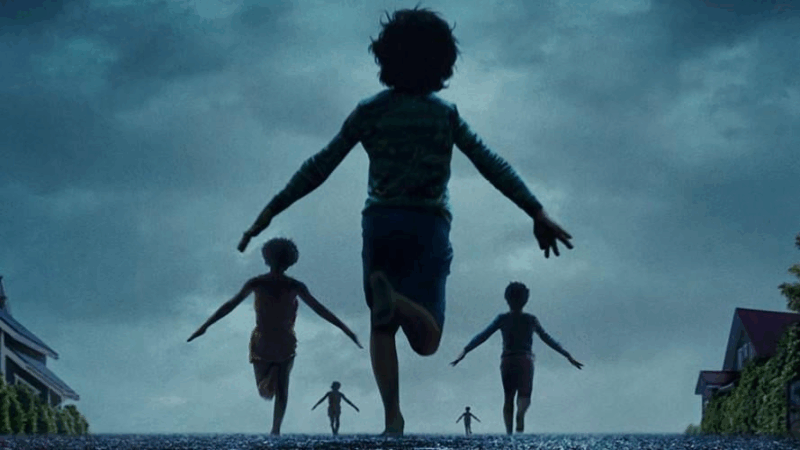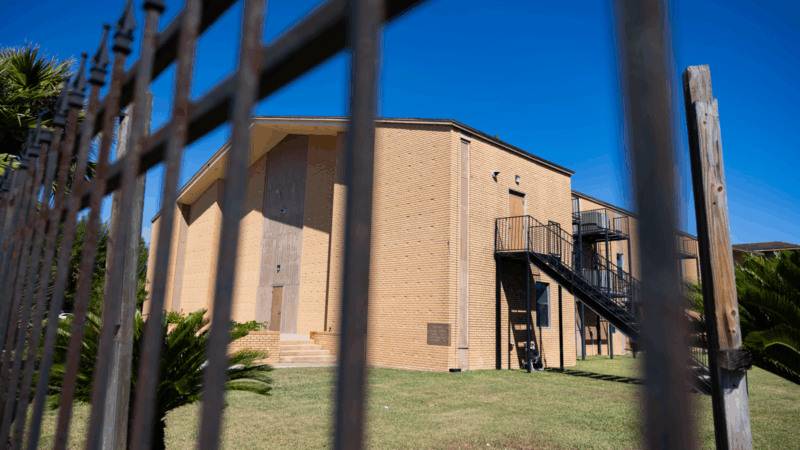‘Weapons’ exposes the dark underbelly of American suburbia
As I emerged from a showing of Weapons at my local multiplex on Saturday night, I saw a teenager running around the lobby, his arms extended downward and outward — to the great amusement of his friends. “You’re going to see a lot of kids running like that on Halloween,” I heard someone say, and I think he was right. Weapons has been in theatres for just two weeks, and it’s already given us an unshakably memorable image: of children quietly running through a neighborhood, their arms stretched out in that same unsettling way.
Zach Cregger’s ingenious and exultant new horror film is like a Stephen King riff on The Pied Piper of Hamelin, and it has a wonderful campfire-tale spookiness. It begins with an unseen, unidentified young girl, telling us about strange events that happened in the town of Maybrook, Pa.
One Wednesday, at exactly 2:17 a.m., 17 children get out of their beds, walk out their front doors, and disappear into the night. All 17 children are students in the same third-grade class; the only classmate who doesn’t vanish is a shy boy named Alex, played by a very good Cary Christopher.
Julia Garner is their teacher, Justine, who soon comes under suspicion from furious parents. At a school meeting, Justine insists she had nothing to do with what happened, but no one seems to believe her. The scene of Justine being questioned by parents jogged my memory of a very different school meeting, from Field of Dreams, in which Amy Madigan stands up to an angry mob of book banners. I’m guessing this was very much by design, since Madigan herself has a late-breaking but memorable role in Weapons.
Cregger has a knack for springing outrageous surprises, and here he’s made a chiller that’s as fiendishly unpredictable as his previous one, Barbarian. Like that film, but on an even more ambitious scale, Weapons is about the dark underbelly of American suburbia and unfolds from the perspectives of multiple characters, sometimes replaying the same events from new angles.
We spend a lot of time with the teacher, Justine, whom Garner makes an appealingly flinty heroine, devastated for her students but also unwilling to take the blame that others have heaped upon her. Josh Brolin plays a dad so obsessed with finding out what happened to his son that he descends into what might seem like conspiracy-mongering paranoia, except that he really is on to something. The strong cast also includes Benedict Wong as the school’s by-the-book principal, Austin Abrams as a drifter and petty thief, and Alden Ehrenreich as a none-too-competent cop.
There’s something schematic about the movie’s episodic structure, but I was pulled along by the sheer craft and momentum of it all. Cregger stages action with exuberant flair, and he’s good at making you cackle in between jolts and screams. He shows how horror manifests not just in dark hallways and creaky basements, but out in public, in the bright light of day.
During its past two weeks of box office dominance, Weapons has inspired a lot of jokey memes, and also a lot of think-pieces about what, if anything, it’s about. It’s clear enough by the end what’s happened, plot-wise, but the movie is full of rich ideas that invite deeper interpretation.
Maybrook is in many ways the quintessential American Anytown, pretty and idyllic on the surface, but riven by issues of addiction, poverty and police brutality. The children’s disappearance evokes both the satanic panic of the ’80s and ’90s and the continual tragedy of school shootings — something the film makes explicit with a hallucinatory image of a semiautomatic weapon, looming over someone’s house like a ghost.
The most haunting plot point involves the Ring cameras that proliferate in the neighborhood, speaking to our moment of heightened surveillance but not necessarily greater security. The cameras here are a silent witness to horror, capturing footage of the kids running away on that terrible night.
In a subtler, less condescending way than the current COVID-themed horror-western Eddington, Weapons shows us a town that has lost any sense of community. Here, in a state of crisis, no one can agree on what to do, or even on what is actually happening. But Weapons also passes what has become my own personal test for a horror movie: I returned home from the theatre, shivering, satisfied — and more grateful than usual that my wife had left the porchlight on.
Pregnant migrant girls are being sent to a Texas shelter flagged as medically risky
Government officials and advocates for the children worry the goal is to concentrate them in Texas, where abortion is banned.
The 2026 World Cup faces big challenges with only 100 days to go
Will Iran compete? Will violence in Mexico flare up? And what about funding for host cities in the U.S.? With only 100 days left before it beings, the 2026 World Cup in North America is facing a lot of uncertainty.
A glimpse of Iran, through the eyes of its artists and journalists
Understanding one of the world's oldest civilizations can't be achieved through a single film or book. But recent works of literature, journalism, music and film by Iranians are a powerful starting point.
Mitski comes undone
She may be indie rock's queen of precisely rendered emotion, but on Mitski's latest album, Nothing's About to Happen to Me, warped perspectives, questionable motives and possible hauntings abound.
This quiet epic is the top-grossing Japanese live action film of all time
The Oscar-nominated Kokuho tells a compelling story about friendship, the weight of history and the torturous road to becoming a star in Japan's Kabuki theater.
The Live Nation trial could reshape the music industry. Here’s what you need to know
On Tuesday opening statements will begin for the federal antitrust trial against Live Nation, one of the largest entertainment companies in the world.








